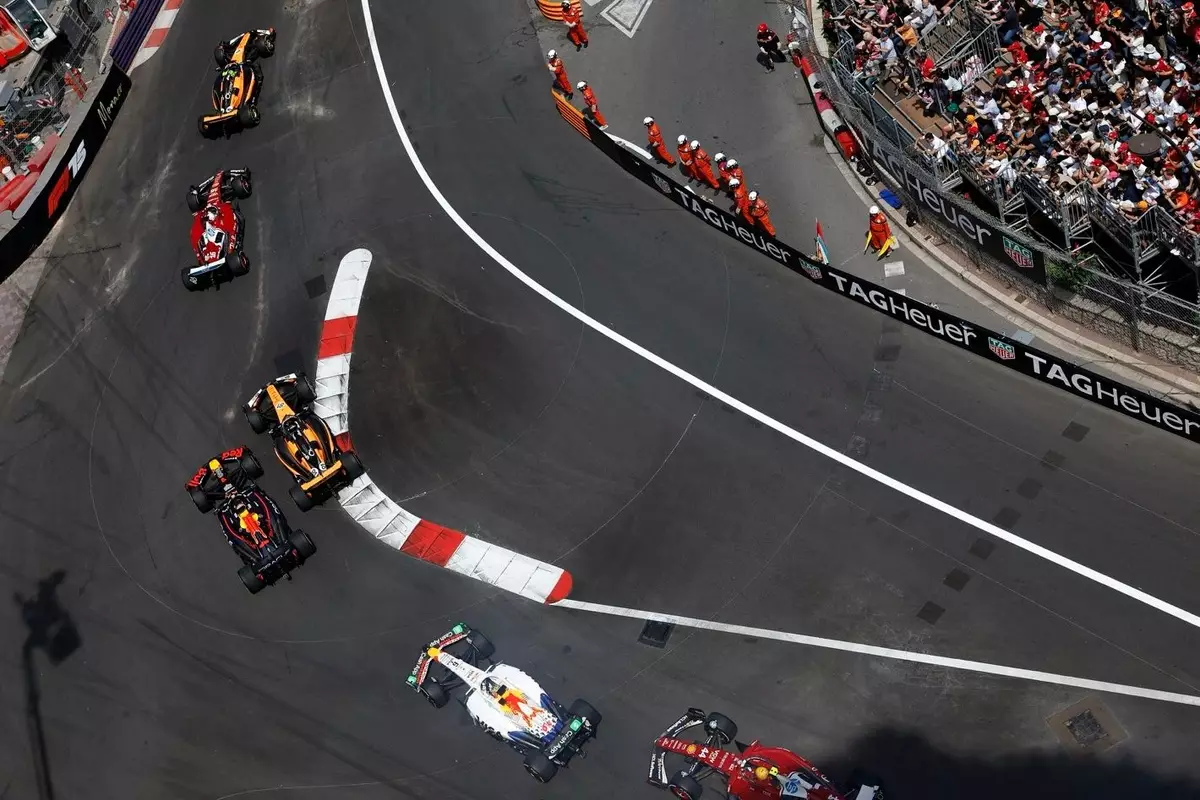The Monaco Grand Prix—a jewel in the crown of Formula 1—has long been a spectacle that fuses glamour with high-speed thrills, yet recent events have raised serious questions about its relevance in the modern racing landscape. George Russell, a driver who embodies the spirit of innovation and competition, has suggested that merely tweaking rules as done in the recent race isn’t enough to rejuvenate the historic event. With the upcoming 100th anniversary of this iconic race, it’s time for F1 to take a deep look in the mirror and ask: are we stuck in a time warp?
In a world where motorsport is continually evolving, clinging to traditions without adaptation can lead to stagnation. The recent attempt to introduce a two-stop tire strategy, mandated by the FIA, was meant to shake things up in a race often characterized by predictability. However, as drivers lined up in familiar positions post-qualifying, it became evident that the time-honored Monaco processions were far from over. The status quo was disrupted not by thrilling overtakes but by strategic slowdowns for the sake of team tactics, raising eyebrows and frustration among both drivers and fans alike.
The Pain of Predictability
Russell’s disappointment was palpable after finishing 11th, behind drivers from teams like Williams, who took advantage of the slow race pace to manipulate their starting positions. His sentiment echoed a growing consensus among fans and competitors alike—Monaco must evolve. While there is still palpable excitement during qualifying, the race has often become a mere formality, reducing what should be a fierce contest to a frustrating exercise in maintaining position while avoiding disaster.
Moreover, Russell’s bold suggestion that the weekend should consist of two qualification races—one on Saturday and a second on Sunday—actually carries weight. In a format where the pursuit of pole position ignites adrenaline, why not reward that intensity twice? Such a radical overhaul could turn the race weekend into a festival of speed, rivaling the flamboyance associated with Monaco itself. Imagine drivers competing for more than just a trophy on Sunday; the thrill of qualification could drive more aggressive strategies and create situations where genuine skill and courage could reign supreme.
A Casualty of Compromise
The notion of compromise has long plagued Formula 1, particularly in a circuit like Monaco that inherently limits overtaking opportunities. While rain-soaked races have provided excitement in the recent past, relying on the unpredictability of weather is hardly a viable long-term strategy. The introduction of new rules should be an avenue for exploration, not a patchwork solution to a deeply-rooted problem. This gradual approach can overlook the need for a revolutionary concept that would revitalize the sport’s oldest race.
In recent decades, many racing enthusiasts express a yearning for a true battle, rather than a procession of cars, each confined by track limits and strategic constraints. Russell captured this sentiment perfectly when he revealed his frustration behind the wheel, highlighting the ease with which slower vehicles could impede faster competitors. A reimagined Monaco could empower drivers, fostering a framework where skill is not just preserved but celebrated amidst the breathtaking backdrop of the principality.
Rediscovering What Makes Racing Great
So, what does the future hold for the Monaco Grand Prix? It’s unlikely that any solution will come without resistance, but the discourse must shift from token gestures to radical rethinking. True enthusiasts wish to see the prowess of the world’s best drivers unfold in thrilling, high-speed competitions—not in a regulatory straitjacket.
Perhaps the occasion calls for an entirely new track layout that embraces more overtaking opportunities or other formats that encourage head-to-head racing. Ultimately, the challenge lies in harnessing the prestige of Monaco while stripping away the limitations that have caused its glory to diminish. With popular figures like George Russell willing to voice discontent, there exists a golden opportunity for stakeholders to come together and forge a future that respects the rich history of the event while propelling it into a more competitive era.
Racing is about exhilaration, skill, and the relentless pursuit of speed. As Monaco approaches its centenary, it’s time to ask whether the current format truly showcases these values or simply pays lip service to tradition. The answer, it seems, is clear: radical change is not just necessary; it is essential.

